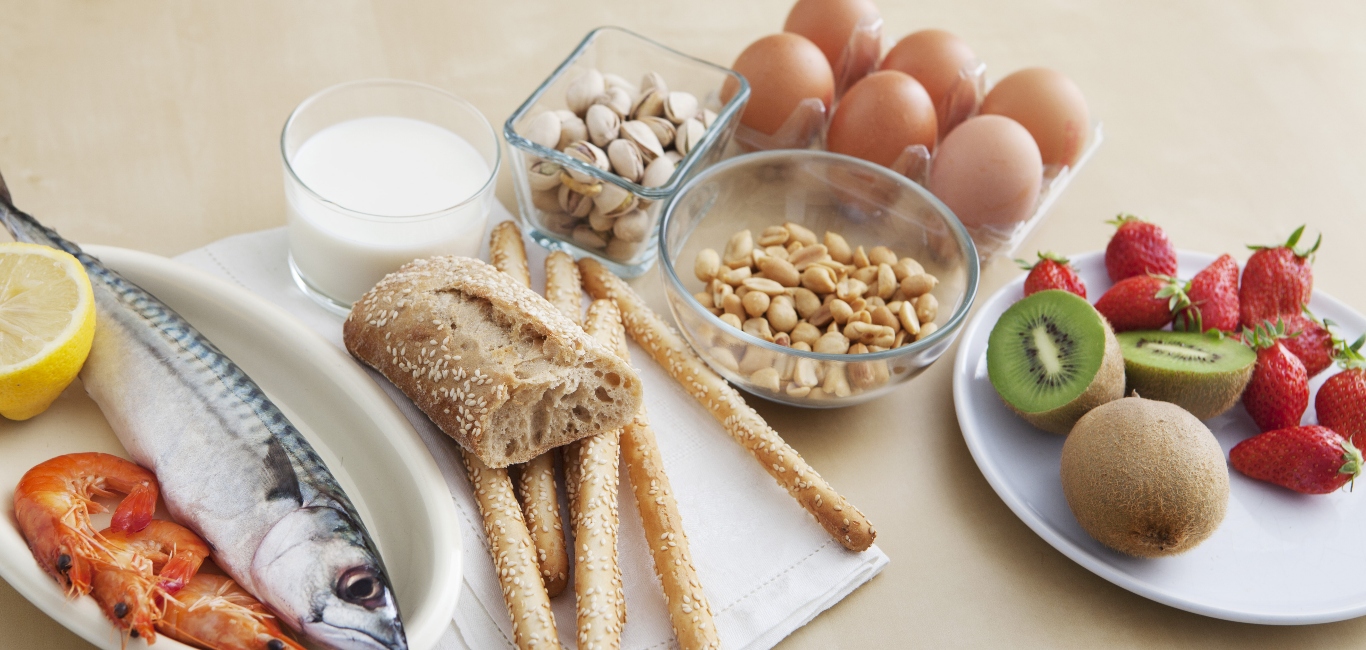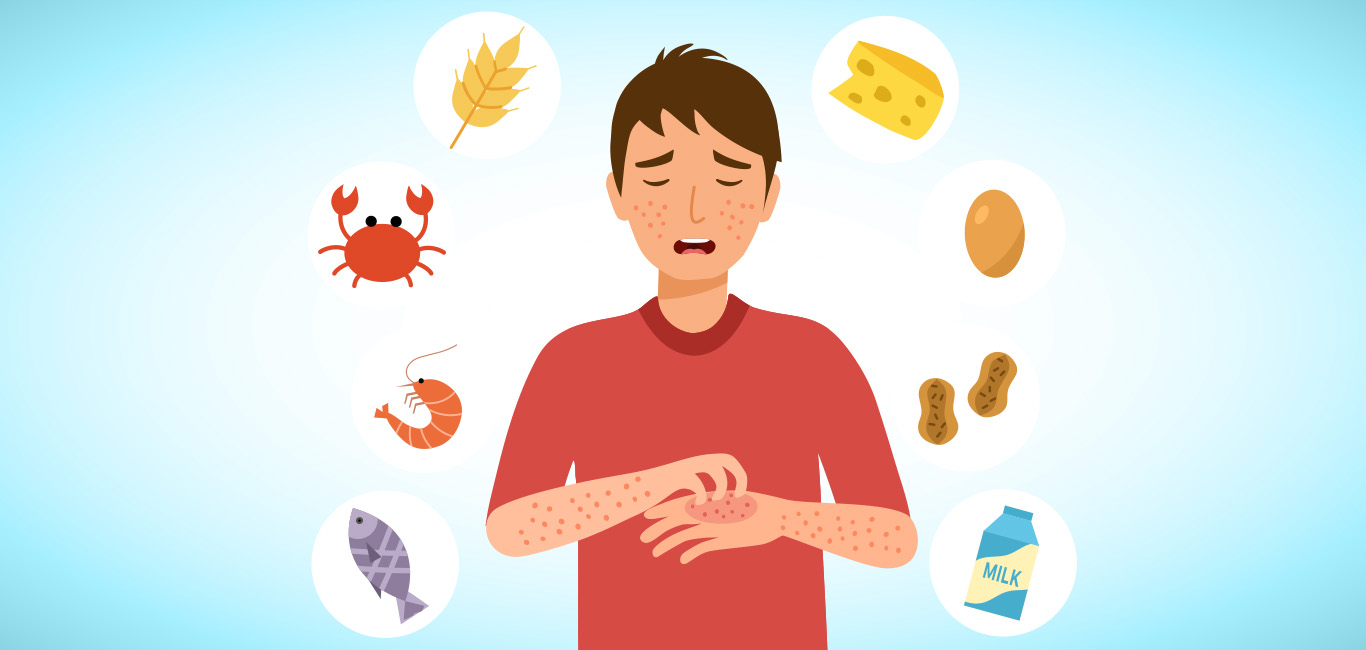
Sandeep Cherian remembers cramping up and doubling over even as a concerned client looked on, suggesting a trip to the hospital.
Cherian turned down the offer, saying the ache would go away as soon as he used the restroom. But it didn’t, not until much later that evening. While new to the fitness industry at the time, he was hardly a novice when it came to understanding his body, and so began a journey by elimination.
Cherian, 23 at the time, was exposed to bloating and cramping frequently, and knew his discomfort was related to food, but he didn’t know which specific group was responsible. Luckily, on the morning of his ‘worst bout’, he had only had a glass of milk before leaving home.
He deduced that lactose intolerance was a possibility. At the age of 25, Cherian gave up milk for a week. Two years on, he remains lactose-free and symptom-free.
“Oddly enough, my symptoms showed up much later in life,” he says. “As I got older, around 23, I had severe flatulence and started getting mild rashes each time I consumed milk products.
“Being bloated and flatulent would hinder my training. I was very ashamed of it. I think because I was in the fitness industry, it was easier for me to identify the problem and completely cut out milk from my diet.
“But that one major cramping incident brought milk to my notice.”
At this point, Cherian is informed that 65 per cent of the world’s population suffers from lactose intolerance. Shock turns to laughter as he thinks back on the time wasted feeling ashamed.
Of pastoralists and their genetic successors
Fact is, humans are among only a handful of species which consume milk post-infancy, let alone milk from fellow mammals. Research suggests that early pastoralists consumed milk to compensate for the lack of reliable resources in their immediate environment.
In that, those of the bovine variety was the most pliant to draw milk from. Basically, lactose intolerance has been an uncomfortable reality for human adults since the advent of cattle-rearing.
Those at the forefront of milk movement (early pastoralists) aided their genetic successors by consumption despite the discomfort and passed on the necessary genes to eventually facilitate the production of lactase — an imperative enzyme to break down the lactose in milk — in the small intestine. Non-pastoralists were not so lucky.
Even in small doses, lactase gets the job done by breaking down lactose into glucose and galactose, and is subsequently absorbed by the small intestine. In the case of lactose intolerance, the non-hydrolysed lactose enters the colon as is and begins to react with the bacteria and ferment. Bloating, gas, diarrhoea, nausea, abdominal cramps and general discomfort usually follow.
As of today, there is no cure for lactose intolerance, only alleviation by moderation. Thus, it’s important to understand why nearly all mammals are poor at synthesising lactose after weaning.
More than 40 per cent of all humans stop producing enough lactase to digest milk between the ages of two and five — the number dips further as we get older. Interestingly, we produce a higher percentage of lactose per litre (70g/L) than ruminants (35-50g/L).
“LCT (a lactase gene) is controlled by neighbouring segments of DNA that act like on-off switches,” says a peer-reviewed article in the journal Proceedings of the National Academy of Sciences. “Certain proteins grab onto certain switches, allowing genes to make proteins only under certain conditions. As people grow older, the signals to LCT’s switches change, shutting it down.
“But in populations where people can digest lactose as adults, mutations to these switches change LCT’s response to signals. Instead of switching off in adulthood, the gene stays on.”
Geography and climate
The significance of a ‘why does it switch off?’ at this juncture cannot be overstated. A conclusive answer is awaited, but hundreds of papers and theories go some way in explaining this phenomenon. Still, only a few read with structural integrity.
Natural selection’s influence on lactase persistence (LP) is on top of the pyramid, a theory which suggests that a steady supply of ruminant milk boosted the odds of survival among pastoralists. Basically, any mutation which allowed a person to absorb more nutrients from milk was favoured by natural selection. The mutation was hardly necessary in parts of the world where herding did not become a way of life, at least not until later.
This could explain why 70 per cent of south Indians suffer from lactose intolerance, while only 30 per cent of north Indians endure the same.
Yes, you read right. So, before you reach for that south Indian filter coffee, you may want to consider its effects on you and those around you.
“I knew I didn’t feel too good when I consumed milk even as a youngster, but I presumed that was so because I just didn’t like milk,” says Deepak S, 35, a south Indian entrepreneur based in Canada. “Also, when you’re young and when your parents insist, you just go with it.
As I got older, though, I knew something was off because I would be bloated the whole day and occasionally, I would have diarrhoea.”
“I spoke about these symptoms to a family physician, and he asked me to quit milk for a month and see if these symptoms persist. They didn’t. That’s when we figured out that I was lactose intolerant, and I was 27 at the time.”
Asked how hard it has been for him to switch to lactose-free milk, he said: “It was tough a few years ago because the alternatives were either rarely available or expensive, but now there are plenty of options in the market.”
The contrasting data from either side of the Vindhyas is because of the Central Asian (pastoral) origins of north Indians as opposed to the Dravidian (non-pastoral) south Indians.
This then leads to the potential role of climate in the distribution of lactose intolerance and lactose persistence across the globe.
“Harsh climates and dangerous diseases negatively impact dairy herding and geographically restrict the availability of milk, and those humans have physiologically adapted to that,” evolutionary biologist Paul Sherman (a professor of neurobiology and behaviour at Cornell) writes in a paper.
“This is a spectacular case of how cultural evolution — in this case, the domestication of cattle — has guided our biological evolution.”
“On the other hand, most adults whose ancestors lived in very hot or very cold climates that couldn’t support dairy herding or in places where deadly diseases of cattle were present before 1900, such as in Africa and many parts of Asia, do not have the ability to digest milk after infancy.”
Evidently, we have some way to go in deciphering the origins of lactose intolerance, but that’s not to say that we cannot begin to transform the narrative on what is scientifically proven to be the norm.

















